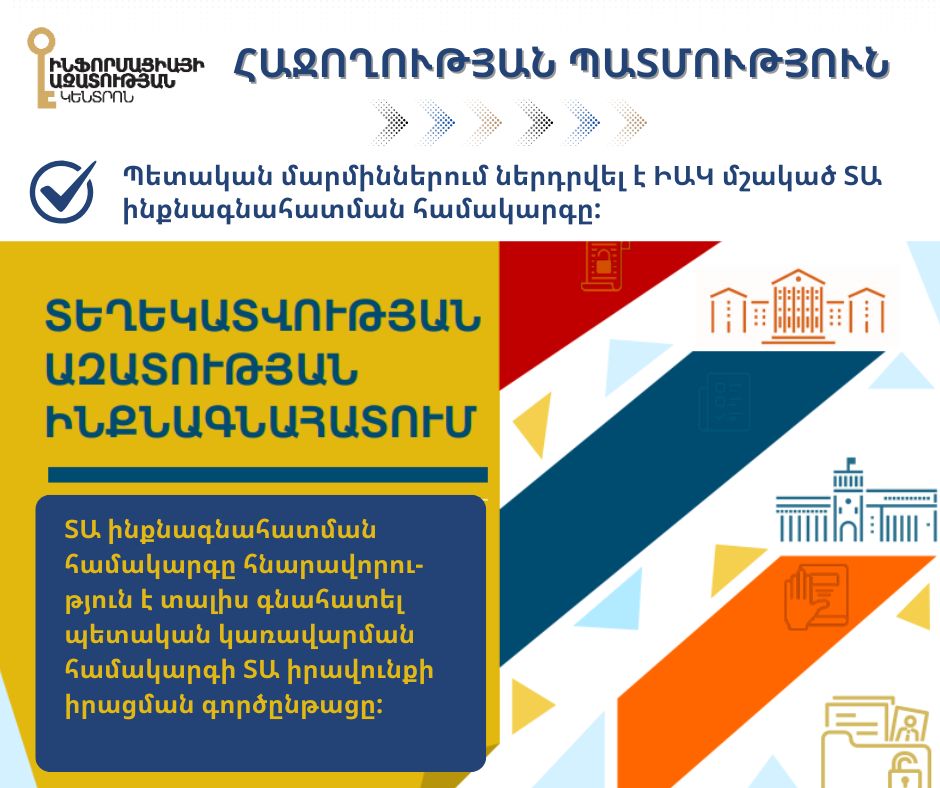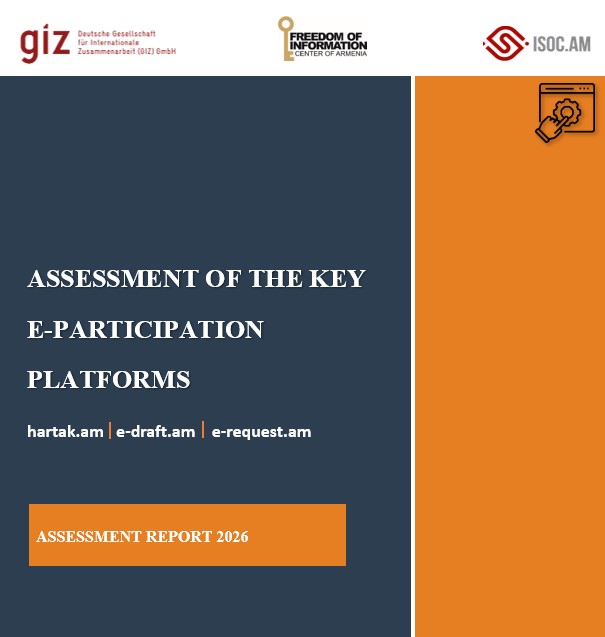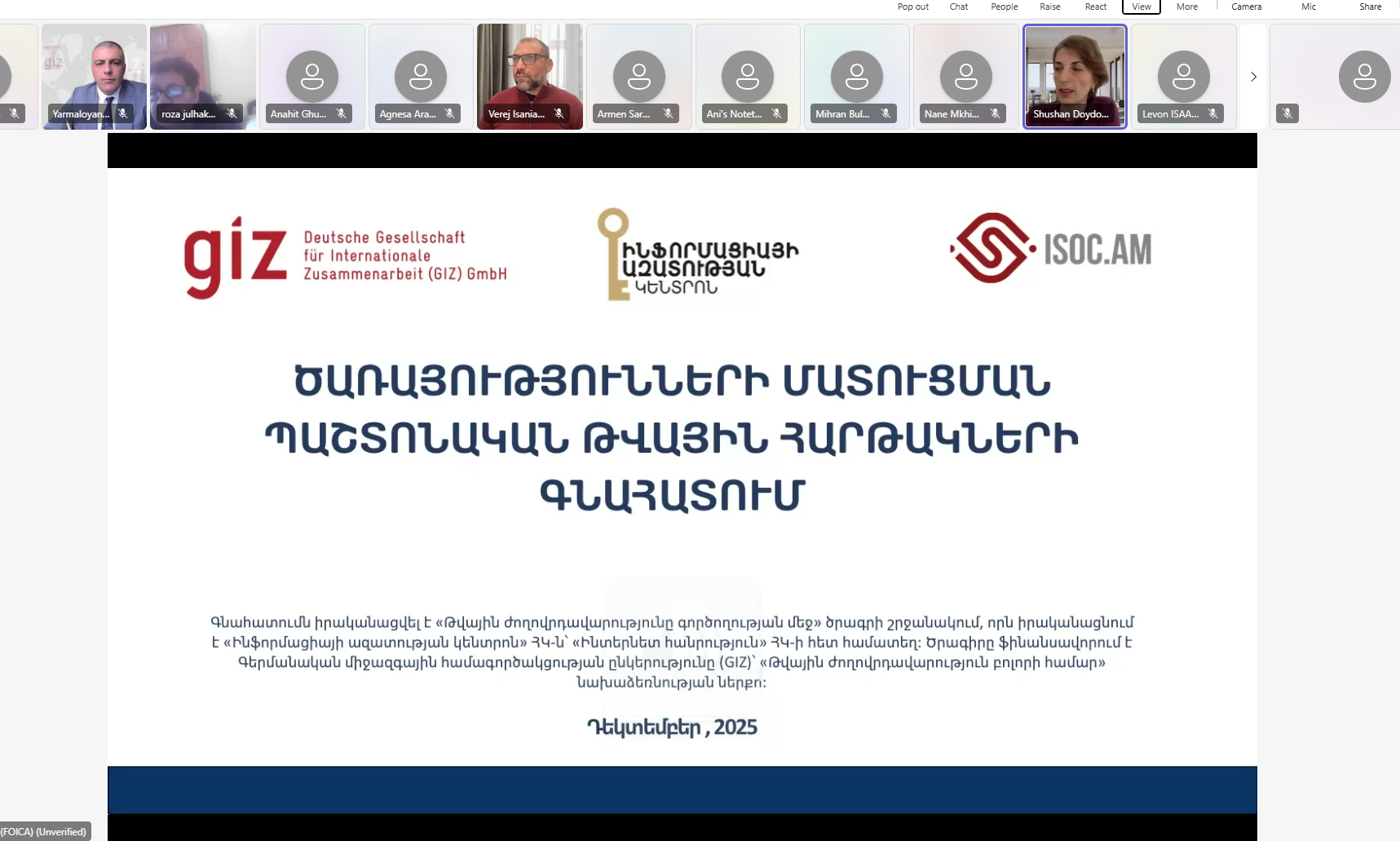The Freedom of Information Center has developed an Access to Information Self-Assessment tool that has been implemented in the Prime Minister’s Office, the Ministry of Labor and Social Affairs, and the Ministry of Economy. This tool enables government bodies to evaluate the implementation of freedom of information within their structures. The effectiveness of the self-assessment system was also highlighted in the UNESCO report. Emphasizing the FOICA’s role in the system’s implementation, the report underscores the importance of introducing a transparency and accountability assessment system in government bodies and promoting proactive disclosure as a crucial tool for identifying, preventing, and analyzing disinformation.
At the FOICA’s suggestion, the commitment to introduce the Access to Information self-assessment tool was included in Armenia’s 5th Action Plan (2022–2024) under the Open Government Partnership initiative. After developing the self-assessment tool, FOICA presented it to representatives of government agencies. Simultaneously, FOICA published the ATI Self-Assessment Toolkit, which aims to establish minimum standards that information holders must meet to assess the state of FOI within their institutions. The Toolkit outlines specific steps that information holders need to take to align their FOI practices with Armenia’s FOI legislation and international standards.
The Prime Minister’s Office, the Ministry of Labor and Social Affairs, and the Ministry of Economy were selected as pilot bodies for implementing the self-assessment system. The initial steps were carried out in the Ministry of Labor and Social Affairs. FOICA expert Gevorg Hayrapetyan collaborated with ministry subdivisions to identify the types of information held by the ministry, their legal basis for management, their status, and the legal basis for their status (e.g., classified or not). Then the results of the implementation of the self-assessment tool were discussed.
As of December 2024, an Access to Information Self-Assessment tool has been successfully piloted in the Prime Minister’s Office, the Ministry of Labor and Social Affairs, and the Ministry of Economy of the Republic of Armenia. In the near future, the tool will also be introduced in other public administration bodies. The comprehensive implementation of the system across public administration will allow for identifying FOI proactive and reactive issues and developing targeted solutions. This process will also enhance access to official information, both directly and indirectly.








